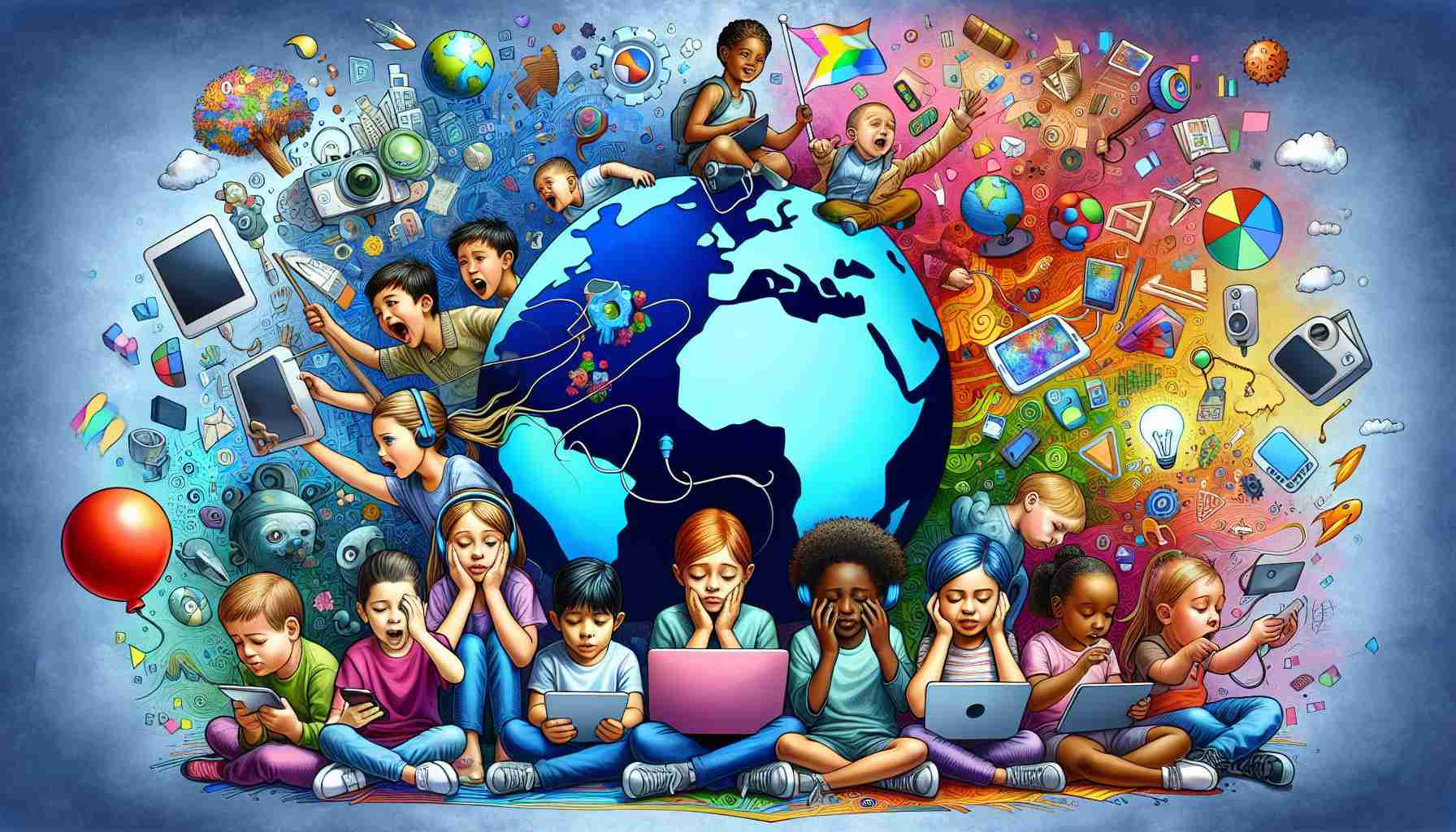Children given smartphones to calm their anger do not learn to control their emotions, according to a recent study. Experts caution that offering a digital device to a child in a fit of anger may hinder their emotional regulation skills. In their formative years, children learn crucial emotional responses that shape their behavior. This developmental period is essential for them to learn how to react calmly rather than aggressively in challenging situations, fostering better social interactions and independence.
In recent times, parents are increasingly resorting to digital devices as a means to pacify children during emotional outbursts. Researchers suggest that this trend could have detrimental long-term effects on children’s emotional development.
A team from Eötvös Loránd University in Hungary conducted a study involving 265 parents of 3.5-year-old children. One year later, a follow-up questionnaire revealed that the more parents used phones or tablets to calm their children, the poorer their children’s anger management and coping skills had become. This study underscores the potential negative impact of frequent digital device usage on children’s emotional well-being.
Additional Insights into the Impact of Digital Devices on Children’s Emotional Development
As debates continue on the effects of digital devices on children’s emotional development, several key questions emerge to provide a deeper understanding of the issue:
1. How Do Digital Devices Influence Emotional Regulation in Children?
Research indicates that excessive use of digital devices to calm children during emotional episodes may hinder their ability to develop proper emotional regulation skills. This may lead to difficulties in managing emotions effectively, impacting their social interactions and overall well-being.
2. What Are the Long-term Effects of Using Digital Devices for Soothing Children?
While immediate pacification through digital devices may provide temporary relief, the long-term consequences on children’s emotional development are a growing concern. Studies suggest that dependence on digital screens for emotional regulation could result in poor anger management and coping skills in the future.
Key Challenges and Controversies:
One of the primary challenges associated with the impact of digital devices on children’s emotional development is finding a balance between utilizing technology for educational purposes and monitoring its potential adverse effects on emotional well-being. Controversies arise regarding the appropriate age for children to be exposed to digital devices and the extent to which parents should rely on them for managing emotions.
Advantages and Disadvantages:
Advantages:
– Digital devices can provide educational content and learning opportunities for children.
– They offer entertainment and engagement, which can be beneficial when used in moderation.
– Accessibility to information and communication can enhance children’s cognitive abilities.
Disadvantages:
– Overuse of digital devices may hinder emotional regulation and social skills development.
– Excessive screen time can lead to physical health issues and behavioral problems.
– Dependency on digital devices may limit real-world experiences and social interactions.
For further insights and resources on children’s digital device usage and emotional development, you can visit the American Academy of Pediatrics website. This reputable source provides guidelines and recommendations for parents seeking to navigate the impact of technology on children’s well-being.
